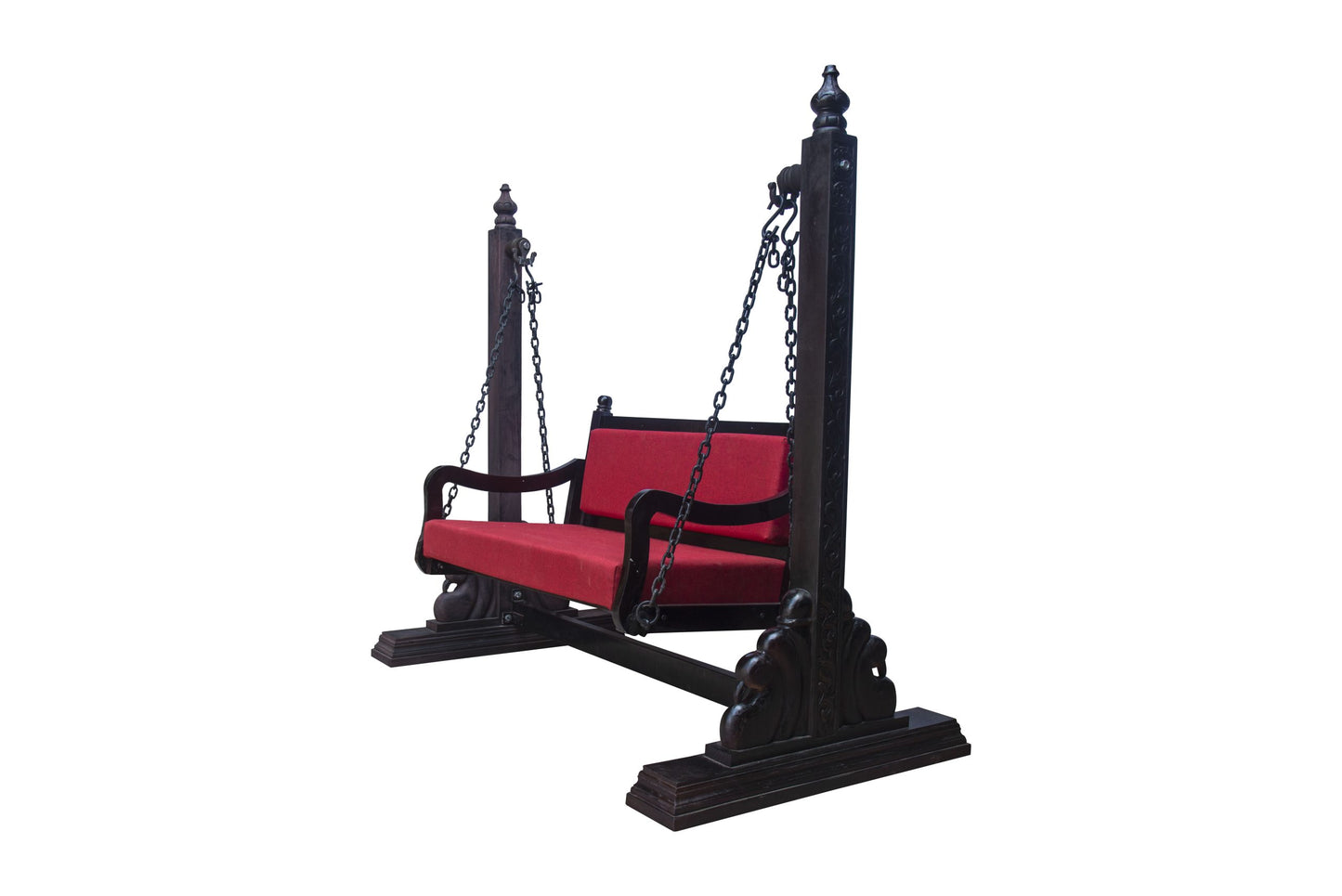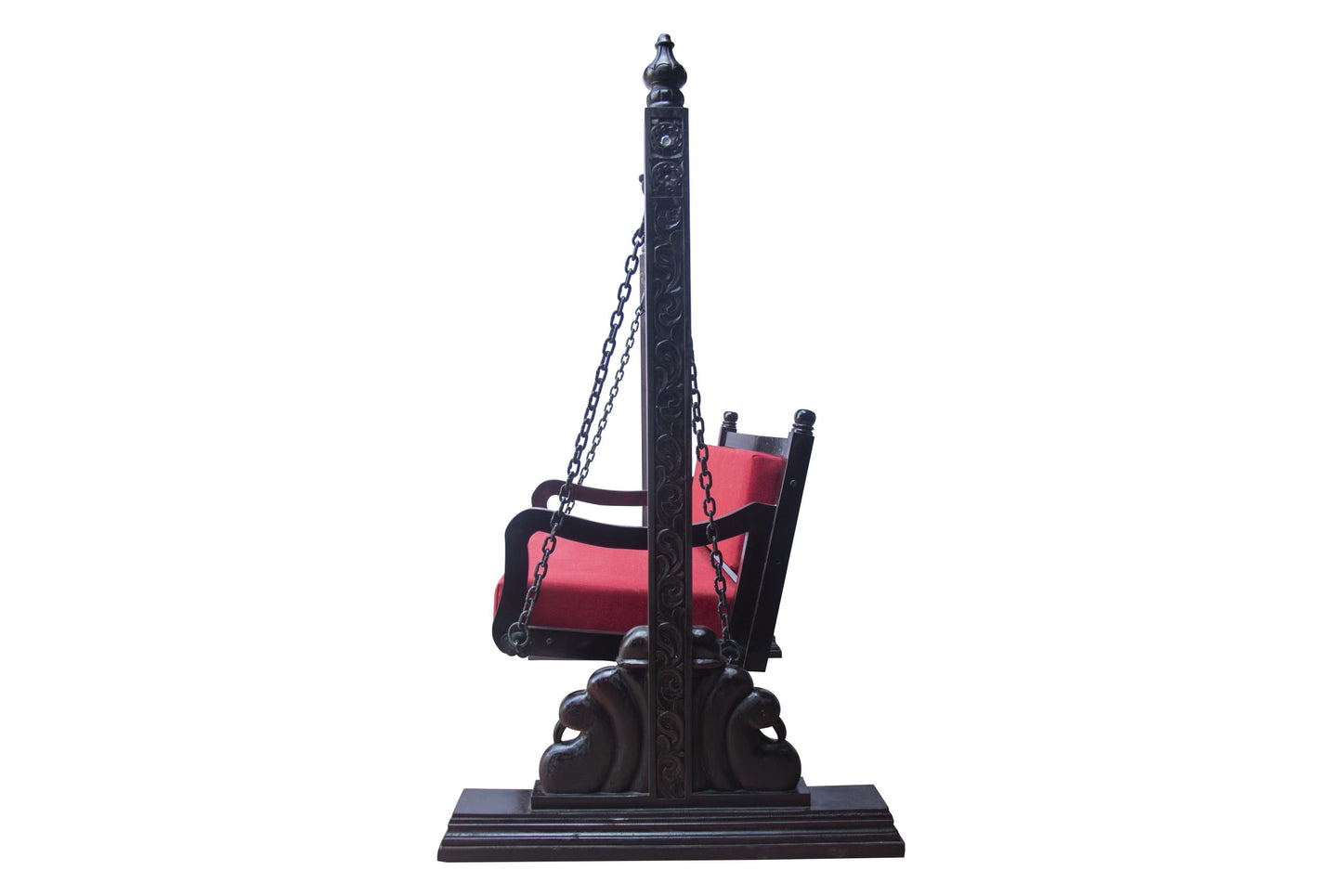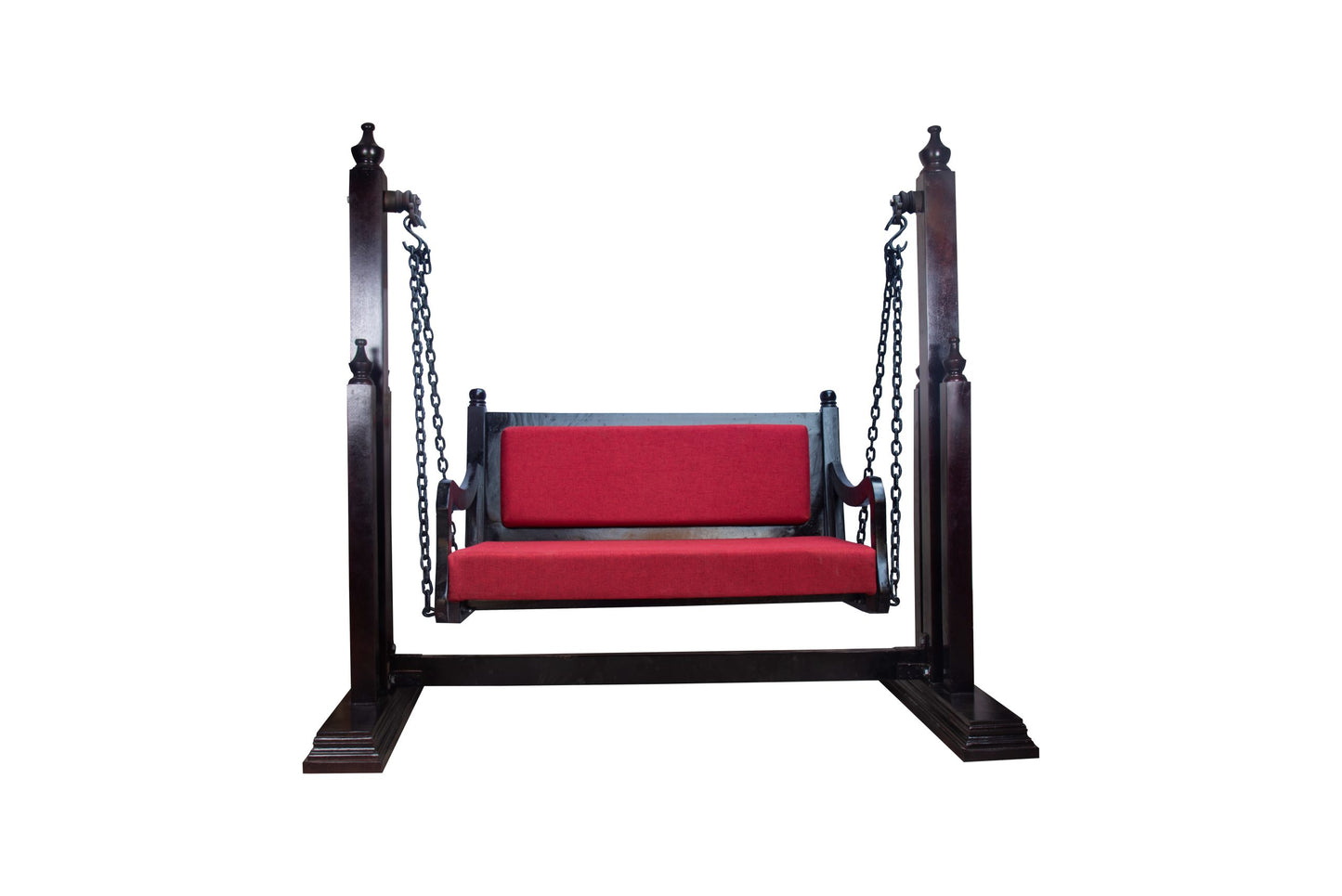A traditional Indian wooden jhula, also known as a swing or hammock, is a popular piece of furniture that holds cultural significance in Indian households. It typically consists of a wooden frame with a suspended seat, allowing individuals to swing gently. Here are some features and uses of a traditional Indian wooden jhula:
Wooden Frame: The frame of the jhula is crafted from wood, often featuring intricate carvings and designs. Common wood choices include teak, rosewood, or mango wood, known for their durability and aesthetic appeal.
Suspended Seat: The seat is usually a wooden plank or bench suspended by strong ropes or chains from the frame. Some designs may include a backrest or armrests for added comfort.
Carvings and Ornamentation: Traditional Indian wooden jhulas are known for their detailed carvings and ornamentation. The designs may include floral motifs, geometric patterns, or depictions of cultural and mythological themes.
Religious and Spiritual Spaces: In some households, a wooden jhula may be placed in a designated prayer or meditation area, serving as a comfortable seat for contemplation and worship.
Social Spaces: Traditional Indian jhulas often become central to social spaces, providing a comfortable and inviting seating arrangement for family members and guests.
Symbol of Hospitality: Offering guests a seat on the jhula is considered a gesture of warmth and hospitality in many households.
Traditional Indian wooden jhulas contribute to the cultural and aesthetic richness of homes. They blend functionality with artistry, creating spaces for relaxation, socializing, and cultural expression. The craftsmanship and designs of these swings are often passed down through generations, creating a sense of heritage and continuity.




 Shipping Australiawide
Shipping Australiawide 






